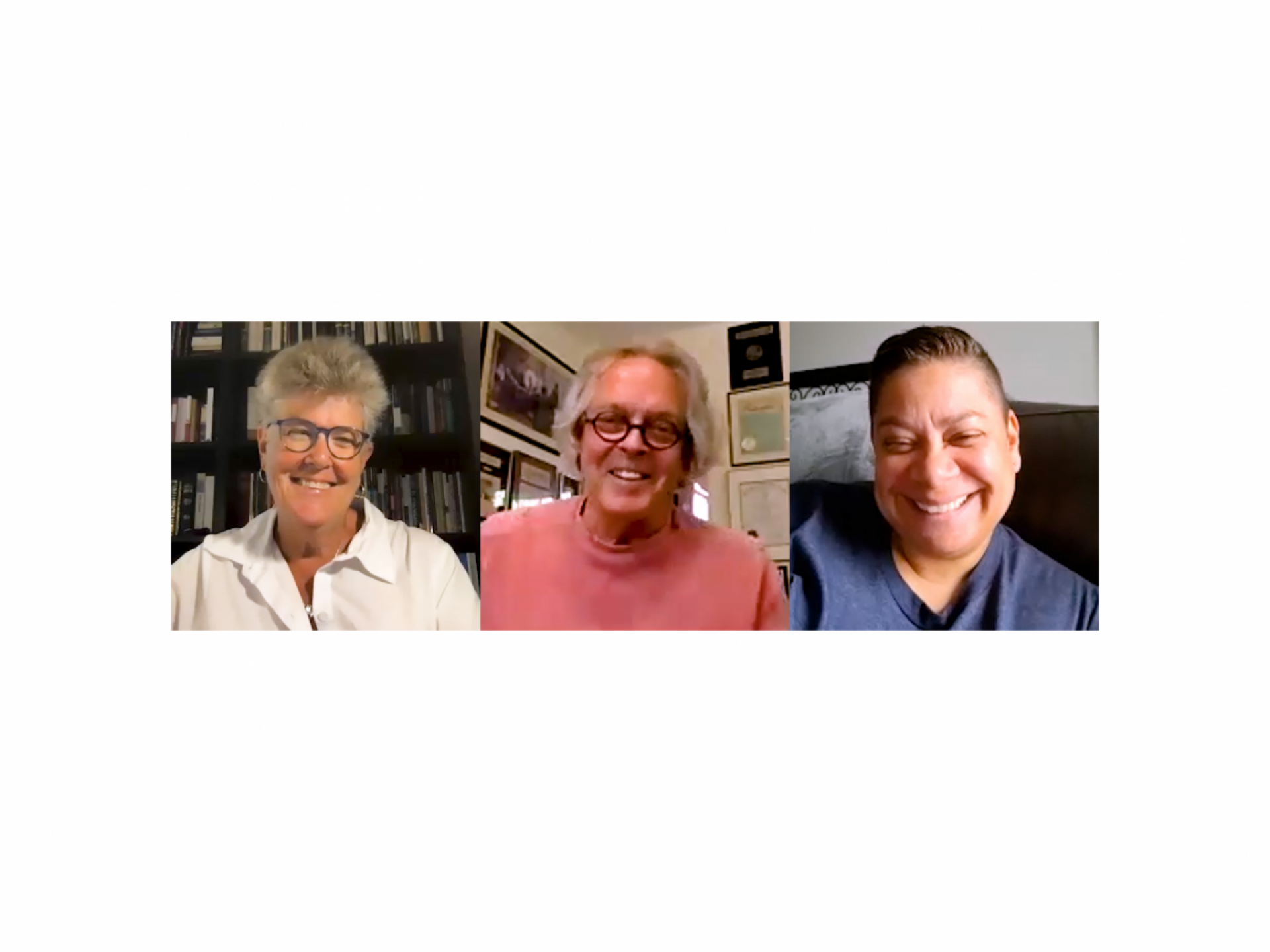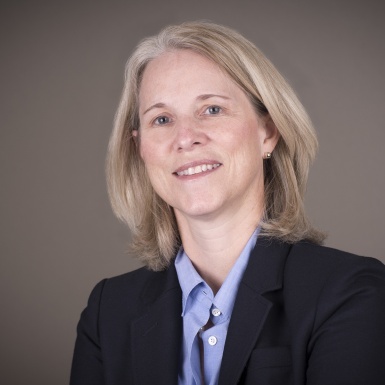Giving Voice to What Matters Most: Dementia During COVID-19

Sign up and receive information on the latest news and updates.
UsAgainstAlzheimer’s series “Giving Voice to What Matters Most” features the stories of people who are living with dementia or at high risk for the disease. Tracey Lind, Daisy Duarte and Greg O’Brien recently met by Zoom to talk about issues that are important to them. By sharing their experiences, they hope to reduce stigma and misconceptions, and empower others to speak freely and live life to the fullest. In part two of the series, Tracey, Daisy and Greg talk about their experiences during the COVID-19 pandemic.
Tracey Lind: In some ways, I think the shutdown was actually good for me because our schedule really slowed down. And our speaking travel came to a screeching halt. And life got simpler. And I honestly think that was good for me. I was able to maintain my commitment to the SHIELD plan – that means to sleeping and handling stress, and social interaction, and learning new things, and exercise and diet. I was able to do all those things in the midst of the COVID shutdown.
But as the world started to open up it’s gotten harder and more confusing for me. Harder for me to figure out what I’m allowed to do. And confusing to make sure I’m doing all the things I’m supposed to do. So, four months in I’m finding it a little confusing.
Daisy Duarte: Well, four months in it’s made me more paranoid. I’m not going to lie. I’m very paranoid in every aspect. I’m paranoid going to the grocery store, even though we were on lock down for three months because it’s been like 2 weeks since we’ve been completely open. It just scares me seeing the numbers go up and down, and I have to go to the grocery store to get my mom’s food and son’s food. So, you don’t know if you’re a carrier. Every time I go in my mom’s room I’m spraying Lysol, putting gloves and a mask on – just making sure she doesn’t get it. Because I’ve worked so hard to keep her at ease with Alzheimer’s. So to see her go with a virus like this, it would devastate me to be honest with you.
Greg O’Brien: This disease affects us all differently. So, when we start asking questions like this, I have to wrote notes because I can’t answer unless I write notes. First thing I wrote was humor, I think we’ve covered that. Loss of concentration, tremendous loss. Uncertainty about the future, my family, my health. I think you know there’s no pity here, my cancer is on the rise again so.
The stress comes on like a fog. And sometimes it comes in heavy and sometimes you just see it drift, and I’m drifting off to Pluto again, as I say. the rage is out of control at times and it’s scary for my wife and kids. They don’t know how to deal with it. So, I leave the house. And then sometimes when I leave, because I leave when I’m angry – I’ve lived in this neighborhood for thirty-seven years – I don’t know where the hell I am and that’s not a good thing. Other than that Mrs. Lincoln, how’d you like the show and I could get you some popcorn at half time. That was a joke Tracey.
Tracy Lind: I’ve been working on this litany in my head. And it goes something like this. It’s religious but Greg started it. I wrote this down too – I have to make notes about everything. In the beginning God breathed and created. Then we lost our way and we lost our breath. And then Moses came along and showed people the way. But they had to hold their breath when they walked through the water. And then Jesus came, and the Romans took away his breath on a cross. And then the risen Christ came to the frightened disciples who were locked away in an upper room and he breathed on them, right? And he gave them new life. And over and over again in gas chambers and epidemics and industrial pollution and lynchings and climate change and now COVID, we lose our breath. And we’ve all been hiding away in locked rooms for fear of the virus.
But the COVID quarantine also gave the world time to breath. This kind of great pause. And in the middle of that, George Floyd was killed by the police. And he died crying, “I can’t breathe!” And then we all took to the streets risking our own breath to stand in solidarity with George Floyd and our black and brown sisters and brothers. And then the police released tear gas into the crowds again taking away our ability to breath. And then many retaliated, which sent the rest of us back into locked rooms for fear.
And now we are trying to breath together and yet apart. That’s what four months now really feels like – that we are trying to breath together and yet apart. And those of us with various forms of dementia are trying to hold onto our brains in this really crazy, mixed up world.
Greg O’Brien: Breathing is an involuntary thing. Let us pray that love becomes an involuntary thing, or it just happens all across the country. This country of ours is in tough, tough shape. We need to love more and hate less, and we need to expose the haters.
Tracey Lind: I keep thinking, Greg, what it would be like if I were still on the streets as a faith leader and you were still on the streets as a journalist. And Daisy, you’d be feeding us all as a restaurant manager. Here we are doing this conversation.
Greg O’Brien: Daisy, on the subject of breathing, when you look at your mom – what Tracey just said was so profound. Do you worry about that? Breathing?
Daisy Duarte: I do worry about breathing, the whole aspect of the word, and the aspect of I think that’s how my mom is going to leave. Either she’s going to choke with food, not breathing, or she’s going to pass away in her sleep. Or it could be her getting the coronavirus and not breathing. So, in every aspect of the word I’m scared of it. Because you love someone so much and you don’t want to see them suffer. You want them to go peacefully in their sleep. But who are we to determine what God has planned for her and how she’s going to leave us?
Thank you to Daisy Duarte, Tracey Lind and Greg O’Brien for sharing their stories. UsAgainstAlzheimer’s series “Giving Voice to What Matters Most”is made possible thanks to the generous support of Shawn Taylor and KPB Corporation.
